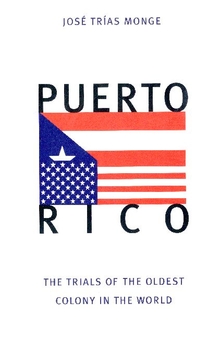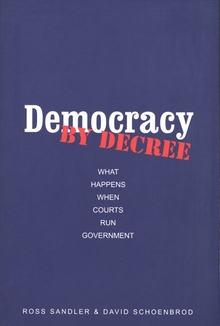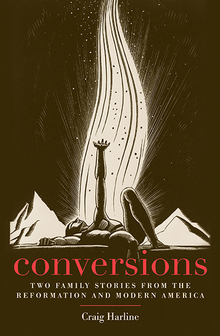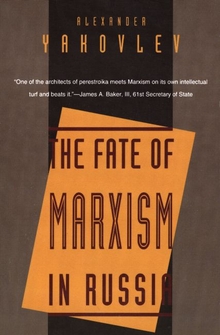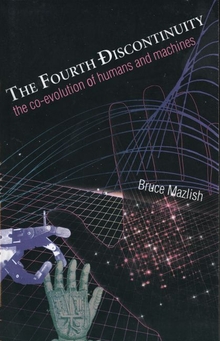Puerto Rico
WARNING
You are viewing an older version of the Yalebooks website. Please visit out new website with more updated information and a better user experience: https://www.yalebooks.com
The Trials of the Oldest Colony in the World
José Trías Monge
José Trías Monge first describes the Spanish rule over Puerto Rico and then traces the impact of American colonial policies there, comparing them with those in the Pacific and the British, French, and Dutch experiences in the Caribbean. He argues that the large amounts of money the United States has given to Puerto Rico have not been productive: not only has the island become frightfully dependent on United States munificence but more than 60 percent of Puerto Rican families still live below the poverty line. Politically, the situation is even worse. The United States has granted Puerto Rico limited self-government but has ignored the wishes of the Puerto Rican people—as expressed in two plebiscites—for greater autonomy, since it cannot make up its mind which decolonization option best serves American interests. Trías Monge discusses the various options of Puerto Rican independence, statehood, and an enhanced commonwealth status and urges the United States to end its present policy of inattention and inaction.
"Nearly a century has passed since the United States annexed Puerto Rico. José Trías Monge's book is a thoughtful chronicle of a quasi-colonial relationship and a persuasive argument for the U.S. to focus attention on the island and liberate it from ambiguity."—Robert Pastor
"Grounded in a deep understanding of the constitutional and political history of the United States-Puerto Rico relationship, Trías Monge presents a compelling case for prompt and decisive action to end the island's colonial condition, once and for all. As we reflect on one hundred years of this relationship, the author helps us envision a host of bold initiatives that will place it on a path of decolonization. The book is compulsory reading for anyone who eagerly awaits that outcome and hopes to engage actively in it."—Francisco A. Scarano
"A highly regarded authority on the constitutional history of Puerto Rico, author José Trías Monge is uniquely qualified to assess the island's 100 years of colonialism. . . . Trías Monge's major contribution lies not in his factual account of U.S. colonialism (which is complete and largely objective), but in his comparison of Puerto Rico's experience with the experiences of American colonies in the Pacific and French, British, and Dutch colonies in the Caribbean. . . . He outlines four alternative strategies to end the island's subordination to the United States: a transfer of sovereignty, a negotiating commission, a binding plebiscite, and a local constitutional convention on status. His impartial analysis of these four options constitutes the most valuable contribution of this volume. . . . This volume is highly recommended for general readers, policymakers, and students of Puerto Rican affairs. It would make a valuable contribution to both graduate and undergraduate collections on U.S.-Latin American relations."—Martin J. Collo, Journal of Developing Areas
"Trias Monge's new book is a welcome addition to the vast bibliography on Puerto Rico's status question."—Luis Martinez-Fernandez, Rutgers University, The Journal of American History
"A pithy account of Puerto Rico’s troubled 500-year history . . . [and] a carefully reasoned case for a new approach to the perennially unresolved issue of Puerto Rico’s status vis-à-vis the United States."—Thomas Carothers, New York Times Book Review
"A well-written and detailed, yet concise, political and legal history that documents the century-long Puerto Rican struggle to transcend the humiliating colonialism the US has enforced on the country. Jose Trias Monge makes a compelling case for the US to take immediate and decisive action to terminate Puerto Rico's colonial status."—Pedro Caban, New Political Science
"Trias Monge has written a balanced portrait of that island nation's relationship to the US, and what he calls 'possible paths to decolonization' . . . All levels."—Choice
Publication Date: February 8, 1999
28 b/w illus.

